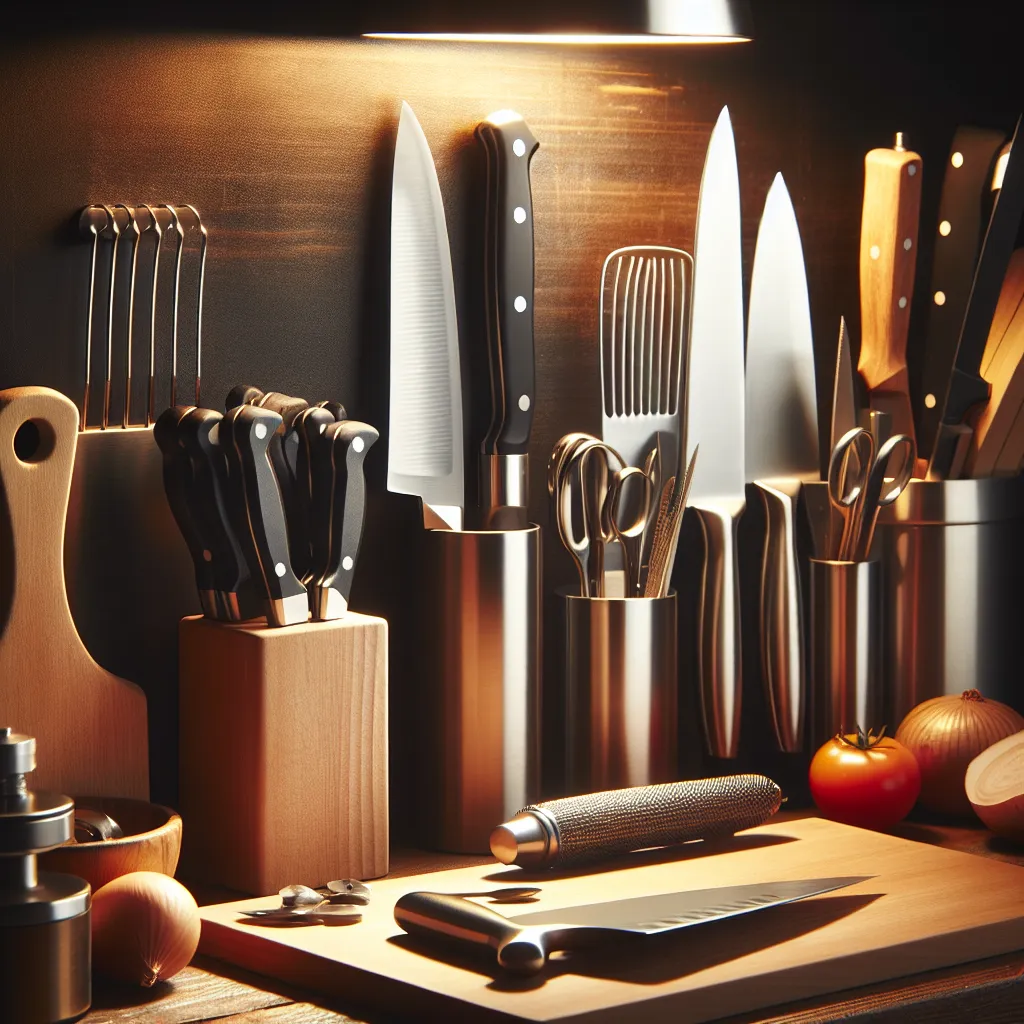Importance of High-Quality Kitchen Knives for Culinary Success
In the world of culinary arts, the importance of high-quality kitchen knives cannot be overstated. The success of any chef or home cook is heavily reliant on the tools at their disposal, and knives are at the forefront of essential prep tools. High-quality kitchen knives not only make the preparation process more efficient but also ensure precision and consistency in cutting, slicing, and dicing ingredients.
Investing in a set of high-quality kitchen knives is a crucial step towards achieving culinary success. Regardless of whether you are a professional chef or an enthusiastic home cook, the right set of knives can elevate your cooking game to new heights. From the razor-sharp precision of a chef’s knife to the delicate artistry of a paring knife, each type of kitchen knife plays a unique role in the culinary process.
Sharp knives not only make cutting and chopping effortless but also promote safety in the kitchen. Dull knives can slip and cause accidents, posing a risk to the cook. Moreover, high-quality knives retain their sharpness for longer periods, reducing the frequency of sharpening and maintenance. This longevity makes them a cost-effective investment in the long run.
Furthermore, the quality of kitchen knives directly impacts the presentation and taste of the final dish. Uniformly cut ingredients ensure even cooking, while precise cuts showcase attention to detail and culinary expertise. Whether it’s julienning vegetables or finely mincing garlic, the right kitchen knives are indispensable for achieving professional results.
In conclusion, the significance of high-quality kitchen knives cannot be overlooked in the pursuit of culinary success. From enhancing efficiency and precision to promoting safety and elevating the overall cooking experience, investing in top-notch kitchen knives is a fundamental aspect of culinary preparation.
Essential Cooking Utensils Every Home Cook Should Have
Aspiring home cooks can elevate their culinary skills by equipping themselves with the essential cooking utensils that make meal preparation a breeze. Whether you’re a novice in the kitchen or a seasoned pro, having the right tools at your disposal is crucial for success in the realm of cooking. A sharp set of knives is indispensable for cutting, chopping, and slicing ingredients with precision, while a reliable set of measuring cups and spoons ensures accurate portioning of different components for your recipes.
Furthermore, a sturdy set of pots and pans in various sizes equips you to handle a wide range of cooking techniques, from sautéing and searing to simmering and braising. Investing in a quality non-stick skillet and a heavy-duty Dutch oven can greatly expand your culinary repertoire. Additionally, having a versatile set of mixing bowls, a wire whisk, and silicone spatulas enables you to efficiently combine and manipulate ingredients, ensuring a seamless cooking process.
Finally, owning a reliable food thermometer is essential for gauging the doneness of meats and ensuring food safety. By outfitting your kitchen with these essential cooking utensils, you’ll be well-prepared to tackle any recipe and set the stage for culinary success.
Mastering Basic Knife Skills: A Key Element for Culinary Success
When it comes to culinary success, mastering basic knife skills is an essential element that aspiring chefs cannot afford to overlook. The art of using knives efficiently and effectively is critical for preparing ingredients with precision, speed, and safety. By honing these fundamental skills, chefs can elevate the quality of their dishes and streamline their cooking process.
Proper grip and knife handling are the foundational principles of mastering basic knife skills. The claw grip technique, where the fingertips of the non-knife hand tuck under and guide the food while the knife hand executes precise cuts, is crucial for safety and control. Understanding the various types of cuts, such as dicing, mincing, julienning, and chiffonade, empowers chefs to manipulate ingredients in diverse ways, adding both visual appeal and enhancing flavor release.
Additionally, sharpening and maintaining knives is indispensable for achieving mastery in basic knife skills. A sharp blade not only ensures clean and uniform cuts but also reduces the risk of accidents caused by slipping. Regular honing and sharpening are vital practices that should be ingrained in every chef’s routine, fostering a culture of respect and care for these essential tools of the trade.
In conclusion, mastering basic knife skills is a foundational element for culinary success. Embracing proper techniques, understanding different cuts, and prioritizing knife maintenance collectively contribute to elevating the craft of cooking. Aspiring chefs who dedicate themselves to honing these skills will undoubtedly find themselves better equipped to navigate the intricate world of culinary arts with finesse and confidence.

